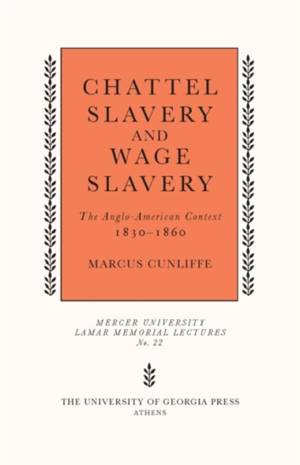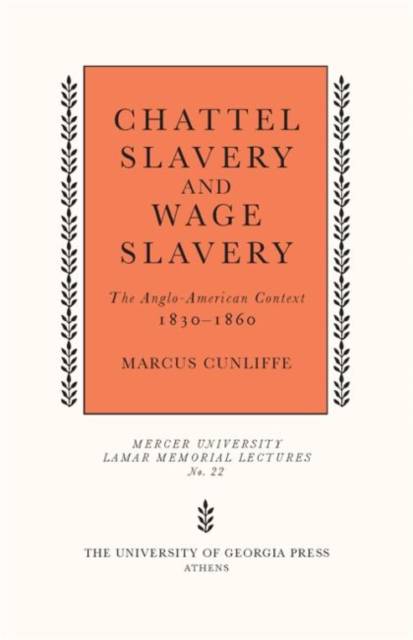
- Retrait gratuit dans votre magasin Club
- 7.000.000 titres dans notre catalogue
- Payer en toute sécurité
- Toujours un magasin près de chez vous
- Retrait gratuit dans votre magasin Club
- 7.000.0000 titres dans notre catalogue
- Payer en toute sécurité
- Toujours un magasin près de chez vous
41,45 €
+ 82 points
Description
This book begins with a provocative paradox: George Fitzhugh of Virginia, one of the most eloquent defenders of Southern chattel slavery, appealed to a New York abolitionist for support. How can this be? The abolitionist in question, Charles Edwards Lester, had confessed that "he would sooner subject his child to Southern slavery, than have him to be a free laborer of England." Lester was in fact referring to the "white" or "wage" slavery of the mother country.
In a three part study, Cunliffe explores the context of chattel and wage slavery in Britain and the United States. He first outlines the evolution of the concept of wage slavery in Europe and the United States, demonstrating how this concept bore upon opinions about chattel slavery in America. In his second section, Cunliffe discusses the precariousness of Anglo-American relationships during the period of 1830 to 1860. In their resentment of British rebukes aimed at the persistence of slavery in a democracy, Americans retaliated by claiming that British wage slavery was worse than American plantation slavery. Cunliffe concludes by charting the career of Lester, the seemingly atypical New York abolitionist. Lester displayed a conviction that Britain was a corrupt and brutal society, most of whose leading citizens detested America. Cunliffe maintains that Lester's opinions were shared by many of his countrymen during the antebellum decades; in this sense he may have been more truly representative of American attitudes than either Southerners like Fitzhugh or Northerner abolitionists like William Lloyd Garrison.Spécifications
Parties prenantes
- Auteur(s) :
- Editeur:
Contenu
- Nombre de pages :
- 152
- Langue:
- Anglais
- Collection :
- Tome:
- n° 22
Caractéristiques
- EAN:
- 9780820332413
- Date de parution :
- 01-05-08
- Format:
- Livre broché
- Format numérique:
- Trade paperback (VS)
- Dimensions :
- 140 mm x 216 mm
- Poids :
- 199 g

Les avis
Nous publions uniquement les avis qui respectent les conditions requises. Consultez nos conditions pour les avis.






